Every organization that has employees traveling on their behalf needs a travel policy. A robust set of procedures protects the employee while they are on company business and helps the organization control travel expenditures. Most businesses have some form of corporate travel policy; however, both the travel environment and travelers’ needs have changed during the pandemic. Existing corporate travel policies need to be updated to address the post-pandemic climate.
Duty of Care Obligations
Duty of Care requires that employers have a comprehensive plan for ensuring the safety of their travelers. That includes designating policies for how and where travel takes place, as well as contingencies should a problem occur. Because of the latter, an organization must know where the employee is and how to contact them in real-time.
To aid in this, travel policy should recommend consolidating all airline, hotel, and car reservations with one Travel Management Company. Upon request (or automatically in the instance of a disruption event), Covington quickly produces real-time reports of all reservations booked by Covington and provides them to the employer. When making reservations across multiple channels, the employer can not get comprehensive info quickly.
Address Health and Safety Procedures
Although vaccines are now being widely distributed, the pandemic is still a very real health threat. Companies should clearly identify what is considered essential travel and what should be accomplished by working remotely or via videoconferencing. When travel is required, corporate travel policy should address pre-travel and U.S. re-entry COVID-19 testing requirements. It should also outline what happens and resources available if the employee tests positive during travel or any post-travel quarantine conditions.
Other health and safety considerations include identifying approved international destinations and guidelines for airline, car, hotel, and train usage. A corporate travel policy can identify specifically approved or disallowed international destinations, or an organization may choose to use the current CDC “hotspot” guidelines.
Travel policy outlines when business class air travel is allowed, for example, to provide more personal space or only on flights of a certain time length. Or some updated travel policies require trips within a specified distance be by car or train. Are employees allowed to use ridesharing transportation or should they rent a car? By establishing travel guidelines for these and other scenarios, the company is fulfilling its Duty of Care to keep the employee safe.
Companies should also determine which hotel chains are adhering to strict safety and cleaning guidelines. Their travel policy needs to be updated to ensure travelers book those hotels.
Empower Employees While Controlling Costs
As mentioned, the world has changed during the pandemic and with it, both company goals and individual priorities have evolved. This is another reason that corporate travel policy needs to be updated post-pandemic. One traveler may want to get back home to the family as soon as possible, while another may be yearning for a weekend away in a different city. The best updated corporate travel policies give employees some choice while setting limits. For example, allowing a ‘Bleisure’ extension at personal expense might save the employer money on airfare.
For hotels, travel policy can define an expense limit at an average cost per room or a certain hotel star rating yet give the traveler the option of which hotel to book. Similarly, meals and entertainment budgets can be a limit or range but let the traveler decide on which meals and where to apply them.
Due to a slowdown of new car production, there is a shortage of rental cars. Travel policies should be updated encouraging travelers to reserve car rentals at the same time as their air. This reduces the risk of availability issues. Becasue car rentals rarely incur cancellation fees, the reservation can be changed later. Having a corporate car rental agreement with a preferred vendor gives the company more leverage and control of costs.
Another way to empower travelers but control cost is by providing travelers and travel arrangers multiple ways of making reservations. Covington corporate accounts can make travel reservations by phone, email, or the Concur online booking tool. Each reservation method has the corporate travel policy embedded and alerts if the booking is outside policy. This gives the traveler or travel arranger flexibility in making reservations at their convenience but also consolidates bookings under one source, facilitating Duty of Care, and increases corporate travel policy compliance, controlling costs.
Let Us Help Update Your Corporate Travel Policy
Covington’s Business Travel Account Management team is happy to help our corporate clients review and update their travel policies. Your dedicated account manager will provide recommendations based on your organization’s existing travel program. Contact us to get started.

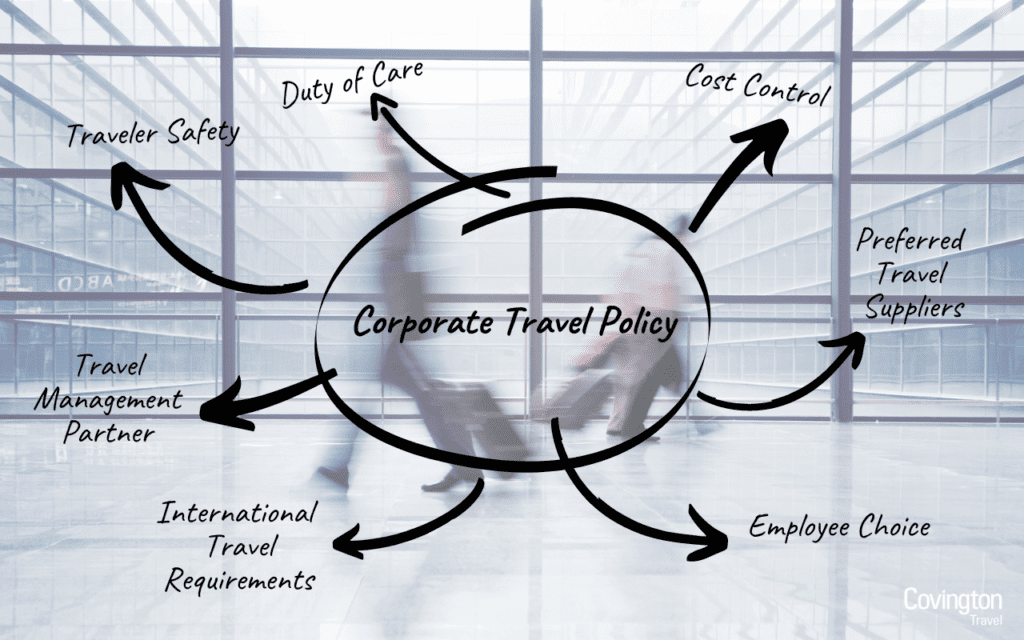


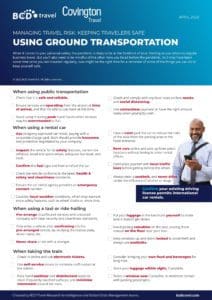
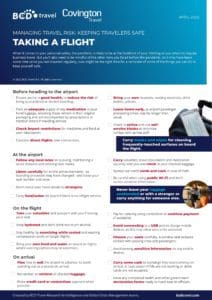
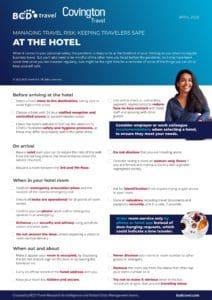
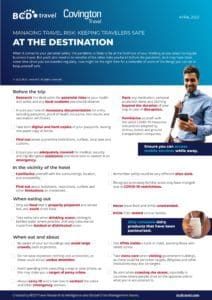
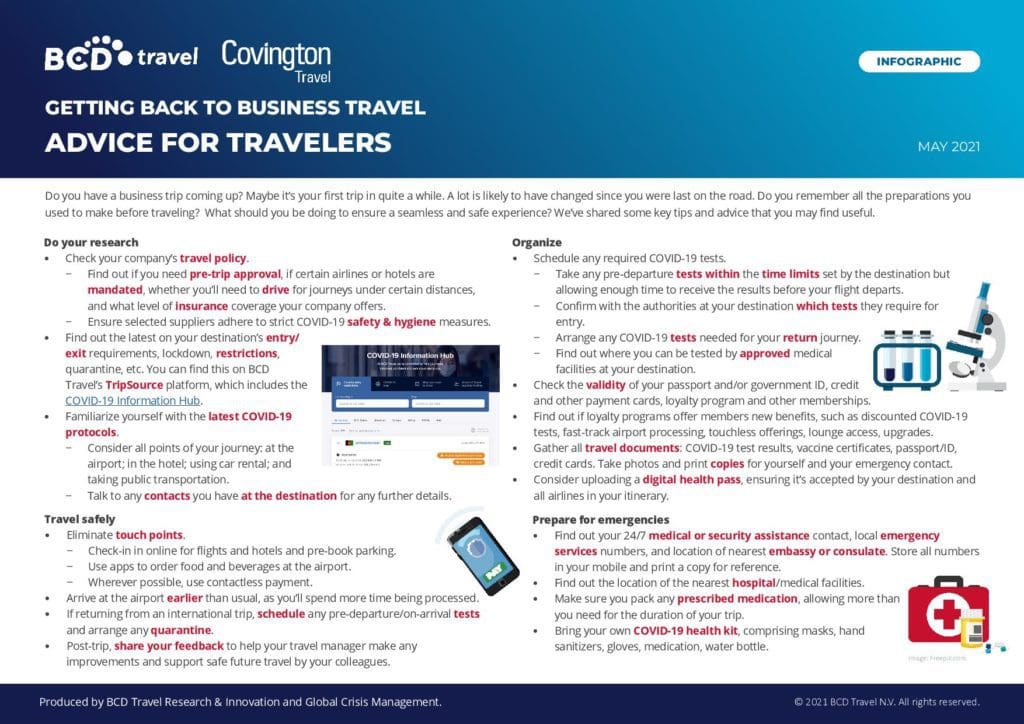
Leave a Reply